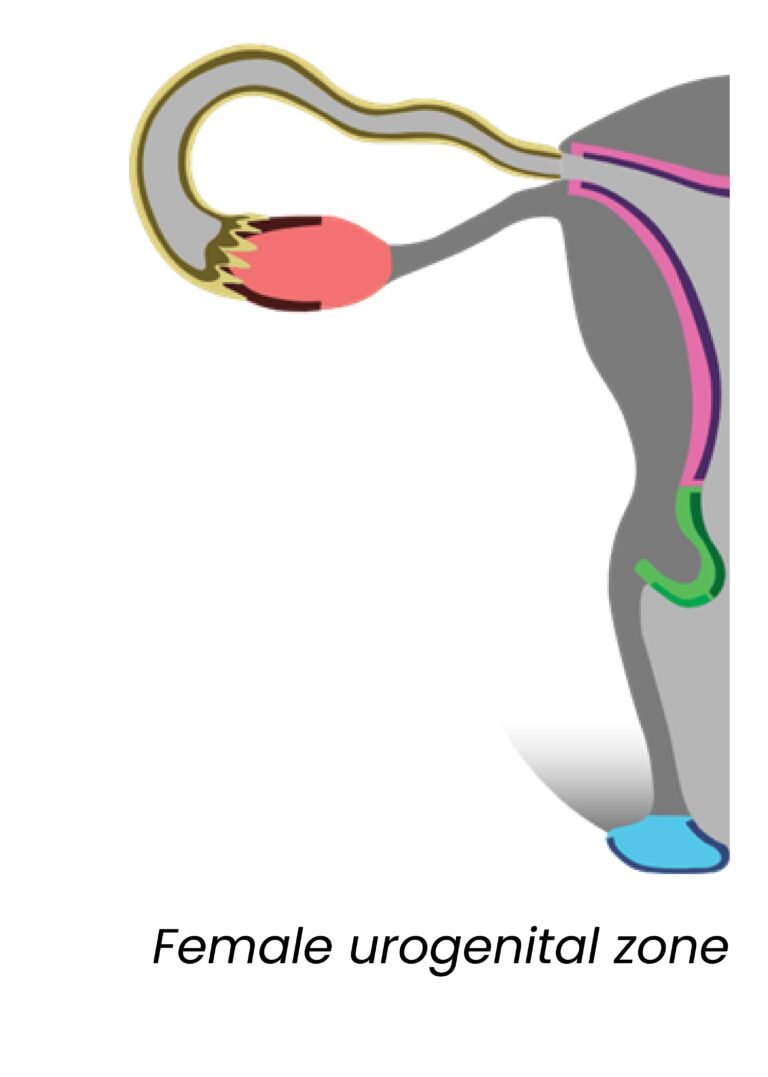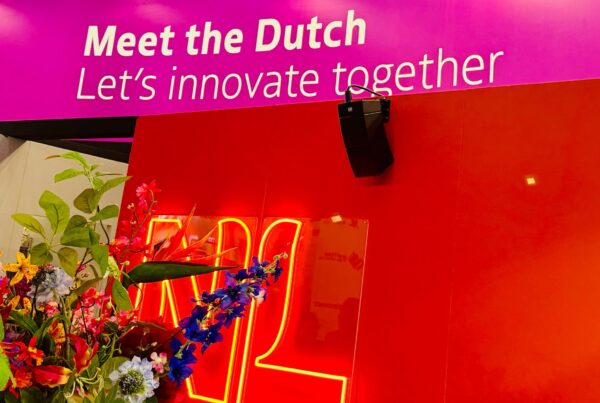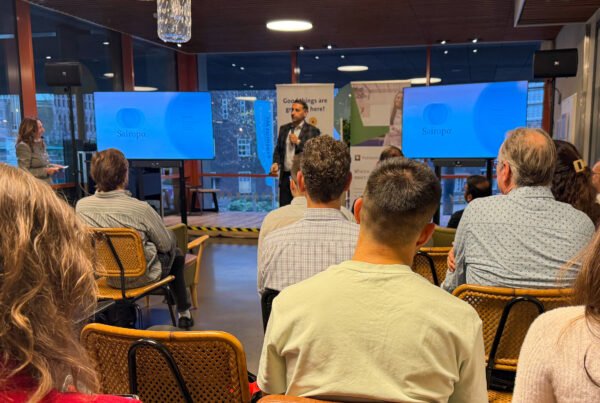Methylomics: from fundamental research to groundbreaking cancer diagnostics
Methylomics emerged from research at Erasmus MC, developing a unique method called MeD-seq to map DNA methylation broadly and accurately. This technology forms the basis for new, less invasive tests that can detect cancers at an early stage. Through collaborations both in the Netherlands and internationally, Methylomics is now moving from research into clinical application.
“It all started with research at Erasmus MC in developmental biology,” explains Ruben Boers, co-founder of Methylomics. “Prof. dr. Joost Gribnau (Head department Developmental Biology Erasmus MC, ed.) had long envisioned a ‘time machine mouse,’ a way to mark which genes are active, and pass that mark on through cell division. This allows you to look back in time which genes were ‘on’ and gives us the ability to better understand human and animal development. We achieved this by applying a molecular flag, DNA methylation.” At the time, no cost-effective and reliable methods existed to read genome wide DNA methylation, so Ruben and his brother Joachim developed a new sequencing technique named MeD-seq, methylated DNA sequencing. Ruben: “Initially, we used it for fundamental research, but we quickly discovered that it also works extremely well for detecting human DNA methylation, which is essential for cell development and is highly disrupted in cancer. This was the beginning of Methylomics.”
The transition from fundamental research to clinical applications was supported by a collaboration with DDL Diagnostic Laboratory. Anco Molijn, CEO of Methylomics: “As Ruben and Joachim dedicated more time to this technique, it was suggested that Joachim could work at Erasmus MC on a regular basis.” Prof. Joost Gribnau, Chief Scientific Officer at Methylomics, adds: “Wim Quint (founder of DDL) and Anco made it possible for Joachim to work one day a week at Erasmus MC for free, developing the bioinformatics for MeD-seq. Such close ties with industry are crucial for translating research into a company.”
“Wim immediately recognized the clinical potential for cancer diagnostics. By comparing healthy tissues with cancerous tissues and analyzing them with MeD-seq, we laid the foundation for Methylomics,” Ruben says. With private funding and research grants, the team built a database of gynaecological cancers, which led to their patented MeD-Scan diagnostic test. Methylomics officially launched in 2018, followed by a licensing agreement with Erasmus MC in 2019.
Improving diagnostics
Methylomics is currently focusing on gynaecological cancer diagnostics. “Our goal is to deliver better diagnostics and less invasive procedures for patients,” Anco says.
“The MeD-Scan assay is evolving from a research-use-only test into a diagnostic product for clinical use.”
Collaboration with Erasmus MC’s Gynaecology and Pathology departments is crucial. “There is a strong need for improved diagnostics, especially in cervical cancers,” Anco continues.

“Current cervical screening is based on the presence of the HPV virus, which is an indirect marker to detect disease. Only a small group of HPV positive women develop cancer. What you really want is a test able to directly detect disease, like the methylation test, which makes this process more precise and efficient. When both HPV and methylation tests are positive, the chance of detecting a lesion is very high.” That is where Methylomics sees its test making a real impact on diagnostics.
Broad, accurate, and efficient: how Methylomics stands out
Methylomics’ proprietary MeD-seq technique analyzes DNA methylation more broadly and accurately than many existing methods. While other techniques examine only 2-4% of the genome, MeD-seq maps the whole genome (16 million sites). Ruben: “MeD-seq also covers regions other methods miss, allowing us to develop biomarkers in areas often overlooked, giving our test a clear advantage.” Another key advantage is that MeD-seq requires much less DNA. Methylomics can work with just 5-10 nanograms – the amount normally obtained from 1000-2000 cells. “We get the same information at a tenth of the cost, using far less DNA compared to alternative methods.”
Methylomics has taken a broad approach from the start. Anco: “Instead of focusing on one cancer type, we investigated multiple cancers simultaneously in our discovery phase, ensuring our markers are widely applicable and reliable.” This makes the process of implementing the technique on a broad range of cancers possible.
The strength of Methylomics lies in the combination of technology and bioinformatics. “At Erasmus MC, analyses often stop at publications,” Ruben says. “We take genomics data, feed it into a bioinformatics pipeline to detect the best regions, and translate them into PCR tests. This is rarely done in academia and is a key part of our added value.”
Milestones and challenges
Reflecting on the past few years, a milestone for Methylomics was the patent application. “Filing the patent in 2023 was fantastic,” prof. Gribnau says. “Having the test patented is a true achievement for us.” Another highlight was the collaboration with the US National Cancer Institute. Ruben: “The research there is vital, both scientifically and for funding.” Anco adds: “A second project followed, highlighting the real value they see in our approach.”
A major challenge for Methylomics came two years ago with the passing of founder Wim Quint. “Wim’s passing was a big setback for us,” Anco reflects. “But we persevered in his name, and his family luckily remains involved in the company through his son Wim Quint jr.” The company continues to build on the strong foundation Wim created, one for which Methylomics will always be deeply grateful.
Looking ahead – what is next?
The future holds exciting developments for Methylomics: the company is expanding beyond gynaecological cancers. “We have a project with the National Cancer Institute using our test in anal cancer, and ongoing studies with Erasmus MC on tissues ranging from eye to colon, brain, and liver.” Anco says. The company is also broadening its methylation database to enable new diagnostic products. “We’re extending our genome-wide atlas to other cancers, aiming to develop similar tests across multiple areas,” Ruben adds. The team is also further exploring uterine cancer and cell-free DNA isolated from blood. Through research and clinical collaborations, they are advancing towards a widely deployable tool for early cancer detection and actively seeking investors to fund commercialization and further product development.
In the short term, Methylomics aims to launch the first version of their MeD-Scan test. Ruben: “The research-use-only kit will be available this year, and after internal validation, it can be used diagnostically. Formal CE-IVDR registration will take about two more years.” Scaling and automation will be key for global deployment. Anco: “Large screenings require full automation, which we achieve with external partners. We’re focusing on the global market, with projects already in the U.S. and Denmark.”
With its unique combination of cutting-edge technology, bioinformatics expertise, and strong clinical partnerships, Methylomics is poised to transform cancer diagnostics. From its roots in fundamental research to the development of broadly applicable, minimally invasive tests, the company is paving the way for earlier detection, more accurate results, and ultimately better outcomes for patients worldwide. As Methylomics continues to grow and expand, its work exemplifies how innovation in the lab can translate into real-world impact on healthcare. Interested in joining their mission? Find out more at www.methylomics.nl.
Date: October 27, 2025




